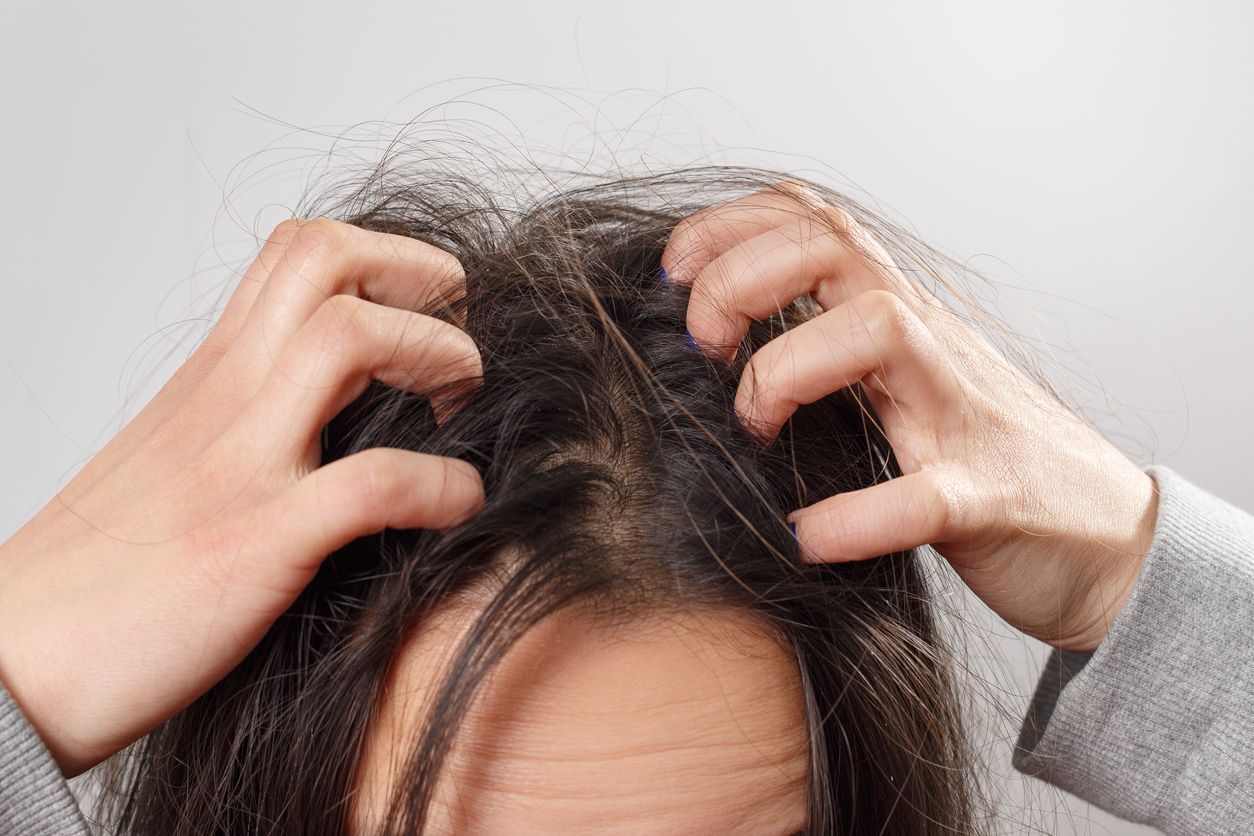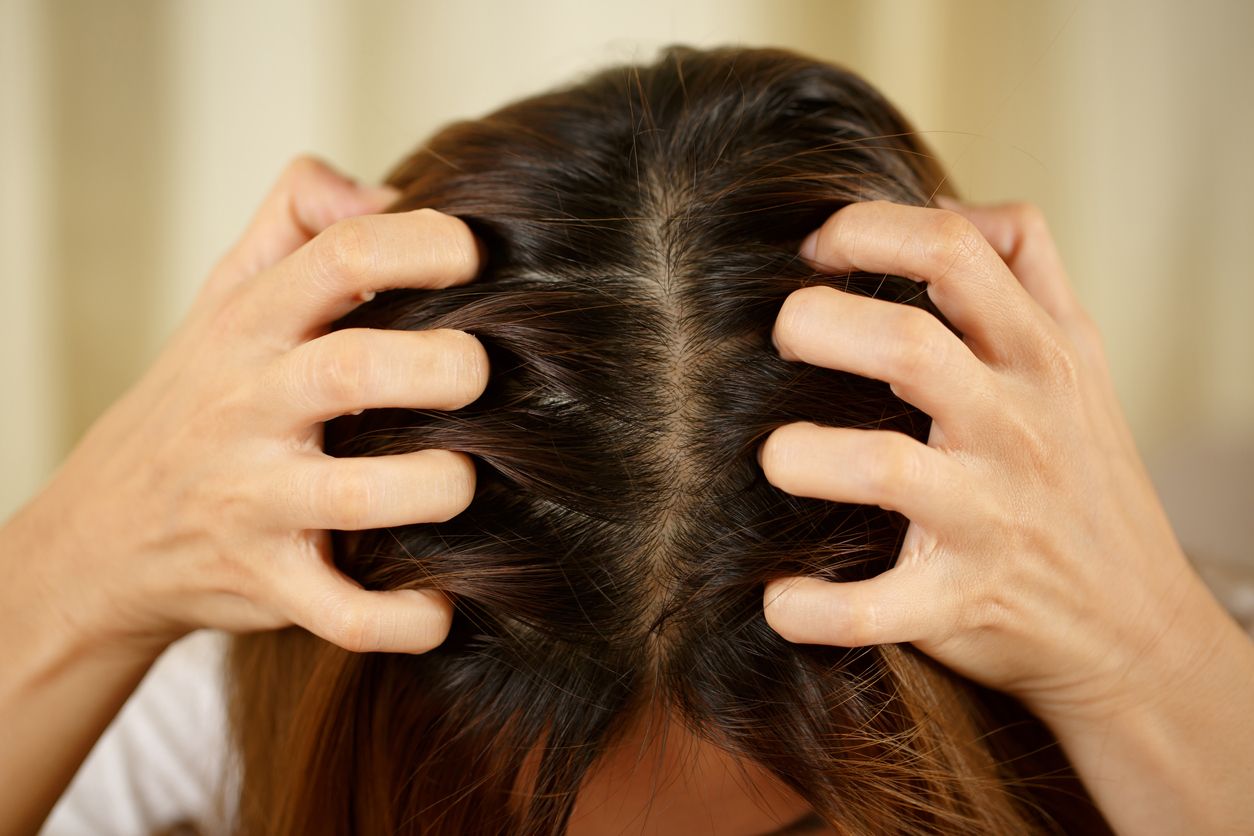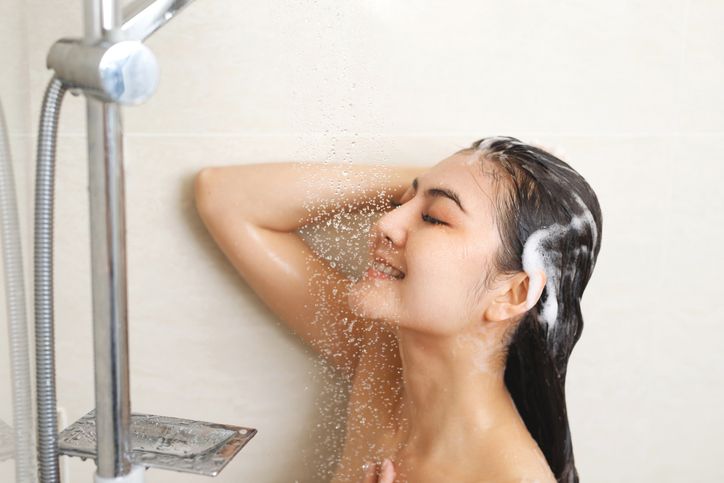
- Home
- Trend
- Weight Loss Strategies
- Acne Tips
- Hair Health Information
- Blemish Removal Tips
- Acne Scar Removal Tips
- Muscle Building Techniques
- Intimate Care Tips
- Postpartum Intimate Care
- Eye Bags Wiki
- Tips for Face Slimming
- Secret of Permanent Hair Removal
- Breast Enlargement Tips
- Cure to Snoring
- Marionette Lines
- Skin-Tightening Secrets
Itchy scalp is a persistent problem that many urban dwellers struggle to resolve. Whether it’s an occasional discomfort or a chronic issue, there are often complex factors at play. Today, we’ve compiled some insights on scalp itchiness—regardless of whether you have oily or dry scalp, chances are you’ve experienced it! Let’s take a closer look at the four main causes of scalp issues and four dermatologist-recommended ways to relieve that itch.
4 Common Causes of Itchy Scalp—Could Your Shampoo Be to Blame?

Scalp itchiness can stem from a variety of factors. Here are some of the most common causes:
1. Imbalanced Sebum Production
No matter your scalp type, an imbalance in moisture and oil can lead to either dryness or greasiness—both of which can cause itching. These extremes are tied to sebaceous gland activity. When your scalp lacks sufficient hydration and nutrients, the glands may overcompensate, leading to itchiness. Common triggers include dehydration, poor moisture retention, and seasonal or weather changes. This makes dryness-induced flaking and itching especially frequent during transitions in climate.
2. Scalp Infections
Scalp itchiness often comes with dandruff, which is commonly linked to a fungus called Malassezia. When there’s excess sebum, this fungus can proliferate, causing inflammation and flaking. Besides fungal infections, bacterial or viral infections (such as ringworm or folliculitis) can also cause redness, swelling, or even lead to chronic skin conditions like eczema or seborrheic dermatitis—both of which are difficult to treat quickly.
3. Allergic Reactions or Irritation
Be cautious during hair washing and treatments! Everyday hair products—shampoos, conditioners, hair masks, serums, or hair tonics—can contain irritants like sulfates, fragrances, or preservatives. For sensitive scalps, these may trigger allergic reactions. Less commonly used styling products, or chemicals in dyeing and perming, may also cause severe scalp irritation, often acting as a precursor to seborrheic dermatitis.
4. Stress and Psychological Factors
You may not realize it, but psychological stress and chronic anxiety can also lead to an itchy scalp. Stress affects hormonal balance, which in turn disrupts sebum production, causing sensitivity or irritation. In severe cases, an imbalanced immune response may even cause the brain to misinterpret signals, leading to a false sense of itchiness. Some individuals might even scratch compulsively or develop trichotillomania (hair-pulling) to relieve the sensation.
How Itchy Scalp Affects Your Life: 4 Major Consequences You Shouldn’t Ignore

Persistent scalp itchiness isn’t just physically uncomfortable—it can impact your life in several ways:
• Hair Loss: Disrupted hair follicle function due to excessive oil or conditions like psoriasis can affect your appearance, making you look less fresh or polished.
• Increased Mental Stress: The constant urge to scratch can be distracting and emotionally taxing. Combined with hair loss or dandruff, it may even lead to appearance-related anxiety.
• Social Pressure: Visible flakes and frequent scratching can affect your self-esteem and social image—others might see you as strange or unhygienic.
• Poor Sleep Quality: Nighttime itchiness can interrupt your sleep, leading to fatigue and diminished well-being during the day.
免費體驗
F8 Hair Regrowth Treatment
1 Minute Self-Registration
Date should not be before minimal date
4 Practical Solutions for Scalp Itchiness: Choosing the Right Shampoo Matters
Solution 1: Choose the Right Hair Products
Whether it’s shampoo or conditioner, choose products that suit your scalp and hair type. For scalp itchiness and dandruff, consider medicated shampoos with ingredients like Ketoconazole or Salicylic Acid. These are known for their antifungal, anti-dandruff, and soothing properties. Also, avoid products with harsh sulfates or strong fragrances. Look for labels that say “gentle formula” or “for sensitive scalp” to minimize risk.
Solution 2: Keep the Scalp Clean and Moisturized
Using mild shampoos is only part of the solution—wash your hair at a reasonable frequency to prevent buildup, but don’t overdo it. Washing once or twice a day is sufficient. Overwashing can dry out your scalp! If you notice flaking or dryness, consider using scalp moisturizers like coconut oil or aloe vera gel. If inflammation is present, consult a professional for suitable medical treatments.
Solution 3: Regular Scalp Massage
Spend 10 minutes daily massaging your scalp to promote blood circulation. This helps relieve itchiness and creates a healthier scalp environment. For those with dry, flaky scalps, massage with nutrient-rich oils like castor oil or tea tree oil to nourish and soothe the scalp.
Solution 4: Improve Your Diet
Your diet has a significant impact on scalp health. Increase intake of foods rich in Omega-3 fatty acids (like fish and flaxseeds), and include Vitamin E and Zinc to support scalp recovery and hair regrowth. A nutrient-dense diet can make your new hair strands stronger, smoother, and shinier.
When Should You See a Specialist?
If these home remedies don’t work or if you experience additional symptoms—such as eczema, unusual bleeding, spreading inflammation, or ongoing hair loss—it’s best to consult a dermatologist for further diagnosis and treatment.
Ultimate Solution for Itchy Scalp: Perfect Medical F8 Hair Regrowth Treatment—Lie Back, Relax, and Regrow!
If you’ve tried countless products and still can’t find relief, we recommend Perfect Medical’s F8 Hair Regrowth Treatment! Whether you’re dealing with severe itchiness, excessive dandruff, or abnormal hair loss, this non-invasive and painless treatment may be just what you need.
Even if you’ve never tried aesthetic medical treatments before, don’t worry! The entire process is stress-free—just lie back and relax. With zero pain, zero side effects, and no recovery time, you can see visible improvements in scalp health and comfort after just one session.
Perfect Medical’s F8 treatment uses low-level medical-grade soft lasers that don’t irritate the scalp. There’s no need for incisions or injections. The laser restores balance to the scalp’s oil and moisture levels while also activating dormant hair follicles. This not only stops the itching but also helps grow stronger, healthier hair.
If you’re experiencing scalp itchiness along with hair thinning, receding hairline, telogen effluvium, seborrheic hair loss, postpartum shedding, or stress-induced hair loss, book a consultation now to enjoy:
Professional Scalp Analysis + Perfect Medical F8 Hair Regrowth Treatment
Say goodbye to itchiness and its negative effects—restore your scalp health and reclaim your confidence!
Try it Today: Perfect Medical F8 Hair Regrowth Treatment免費體驗
F8 Hair Regrowth Treatment
1 Minute Self-Registration
Date should not be before minimal date
FAQ

What causes scalp itchiness?
Scalp itchiness can result from excessive sebum production, improper care routines, environmental stressors, or chemical exposure—all of which can trigger itchiness and dandruff.
Is scalp itchiness related to shampoo?
Yes! Not only shampoo, but all products that come into contact with the scalp—like conditioners or styling products—may contain harsh chemicals that disrupt the scalp’s balance and cause irritation.
Can itchy scalp affect hair health?
Absolutely. Itchiness often signals sebum imbalance, which can clog hair follicles and block nutrients from reaching the roots—leading to hair loss over time.
What kind of shampoo is best for scalp itchiness?
Anti-dandruff shampoos are a good start, but it’s crucial to avoid those with harsh or irritating ingredients.
Which specialist should I see for itchy scalp and hair loss?
Visit a dermatologist who can examine your scalp and follicles for a proper diagnosis and treatment plan.








